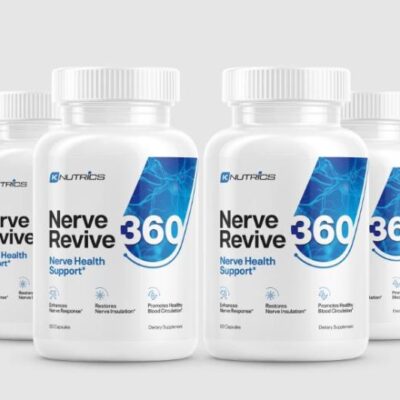In the ever-evolving world of health and fitness, protein has gained a superstar status. From bodybuilders to everyday health enthusiasts, almost everyone seems to be on the protein bandwagon. But amidst all the buzz, one common question remains: Can protein actually make you lose weight?
The short answer is yes—but how and why this happens involves more than just counting protein grams. This article takes a detailed look at how protein affects weight loss, metabolism, appetite control, muscle preservation, and more. Whether you’re just starting your weight-loss journey or looking to optimize your current plan, understanding the role of protein can offer critical insights.
Understanding Protein and Its Role in the Body
Protein is one of the three essential macronutrients, along with carbohydrates and fats. It is made up of amino acids, which are the building blocks for nearly every cell and function in the body—from muscle tissue repair to hormone synthesis.
When you consume protein, your body breaks it down into amino acids that help:
-
Repair tissues
-
Build muscle
-
Produce enzymes and hormones
-
Support immune function
But beyond these core functions, protein plays a surprisingly powerful role in weight loss.
Protein Increases Metabolism Through the Thermic Effect of Food (TEF)
One of the lesser-known facts about protein is that it has a high thermic effect of food. This means your body uses more energy to digest and metabolize protein compared to carbs or fats.
-
Thermic Effect of Protein: 20–30%
-
Thermic Effect of Carbs: 5–10%
-
Thermic Effect of Fats: 0–3%
What does this mean for weight loss?
Consuming a high-protein diet can boost your metabolism and increase the number of calories burned throughout the day, even at rest.
Protein Helps You Feel Full Longer
A key factor in weight loss is managing hunger and calorie intake. Protein is known to be the most satiating macronutrient.
Here’s how protein helps with appetite control:
-
Reduces hunger hormone ghrelin
-
Increases satiety hormones like GLP-1 and peptide YY
-
Slows gastric emptying, keeping you full longer
A high-protein meal or snack can prevent overeating and reduce unhealthy cravings, making it easier to stick to a calorie deficit.
Muscle Preservation While Losing Fat
When you’re trying to lose weight, your goal should be to lose fat, not muscle. However, many weight-loss plans result in the loss of lean muscle mass, especially when calories are drastically cut.
Protein is essential in preventing this.
Why?
-
During a calorie deficit, your body may break down muscle for energy.
-
High protein intake protects muscle tissue.
-
Maintaining muscle helps keep your resting metabolic rate higher, making weight loss more sustainable.
Combining resistance training with a high-protein diet is the gold standard for preserving muscle and accelerating fat loss.
Does protein make you lose weight?
The average Recommended Dietary Allowance (RDA) for protein is 0.8 grams per kilogram of body weight, but this is just enough to prevent deficiency, not to promote fat loss or muscle retention.
For weight loss:
-
Aim for 1.2–1.6 grams per kg of body weight.
-
Athletes or those doing resistance training may go up to 2.0–2.2 grams/kg.
Example: If you weigh 70 kg, you should consume approximately 84 to 112 grams of protein per day.
Best High-Protein Foods for Fat Loss
Getting your protein from whole, nutrient-dense sources is key. Here are some excellent protein-rich foods:
Animal-Based:
-
Chicken breast
-
Turkey
-
Eggs
-
Greek yogurt
-
Cottage cheese
-
Lean beef
-
Fish and seafood
Plant-Based:
-
Lentils
-
Chickpeas
-
Tofu
-
Tempeh
-
Quinoa
-
Edamame
-
Hemp and chia seeds
Adding a high-quality protein powder can also be helpful for convenience and meeting daily targets.
Is Timing Important? When to Eat Protein
Protein timing can optimize fat loss and muscle maintenance, especially around workouts.
Recommended strategy:
-
Spread protein intake evenly throughout the day.
-
Include 20–30g of protein per meal.
-
Post-workout protein within 30–60 minutes helps with recovery and muscle building.
Protein and Cravings: A Natural Appetite Suppressant
People on low-protein diets are often plagued by uncontrollable cravings, especially for sweets and carbs. Adding more protein helps stabilize blood sugar levels and reduce impulsive eating.
In studies, increasing protein intake to just 25–30% of daily calories significantly reduced late-night snacking and improved overall calorie control.
Psychological Benefits of a High-Protein Diet
Beyond the physical, protein also supports mental and emotional well-being during weight loss. Consistent blood sugar levels from a protein-rich diet help reduce:
-
Irritability
-
Fatigue
-
Mood swings
-
Anxiety due to hunger
Feeling satisfied and energetic makes it easier to commit to a long-term healthy lifestyle.
Where to Get Trusted Health Products
For those looking to support their weight loss journey with nutritional supplements, protein powders, or wellness boosters, platforms like Genericcures offer a curated selection of trusted options—delivered discreetly and affordably.
Debunking Protein Myths
Let’s clear up a few common misconceptions:
Myth 1: Too much protein harms kidneys
Fact: High protein intake is safe for healthy individuals. People with existing kidney conditions should consult a doctor.
Myth 2: Protein leads to weight gain
Fact: Excess calories—not protein—cause weight gain. In fact, protein helps with fat loss.
Myth 3: Plant protein isn’t effective
Fact: When combined properly, plant proteins can offer complete amino acids and support muscle retention.
Final Verdict: Can Protein Make You Lose Weight?
Absolutely—protein is a key pillar in any effective fat-loss strategy. It not only boosts metabolism but also keeps hunger at bay, preserves lean muscle mass, and supports overall health.
When combined with strength training, proper sleep, and mindful eating, a high-protein diet can be your most powerful tool for long-term weight management.
Actionable Tips for Using Protein for Weight Loss:
-
Aim for 25–30g of protein per meal.
-
Prioritize whole, lean protein sources.
-
Use shakes or bars as convenient supplements.
-
Pair protein intake with regular resistance training.
-
Monitor your total calorie intake and stay in a slight deficit.



